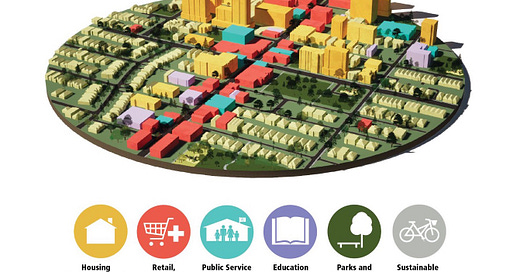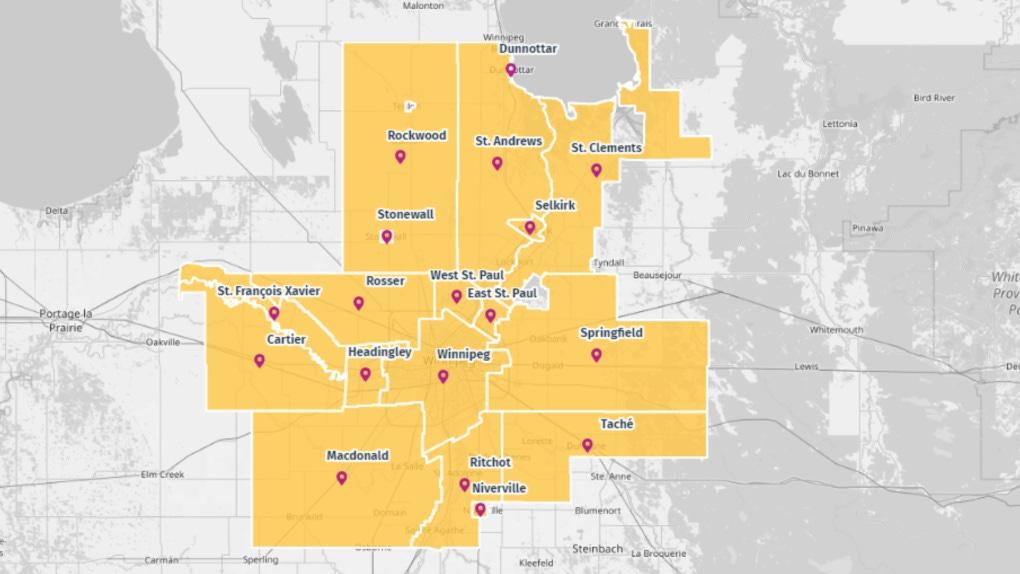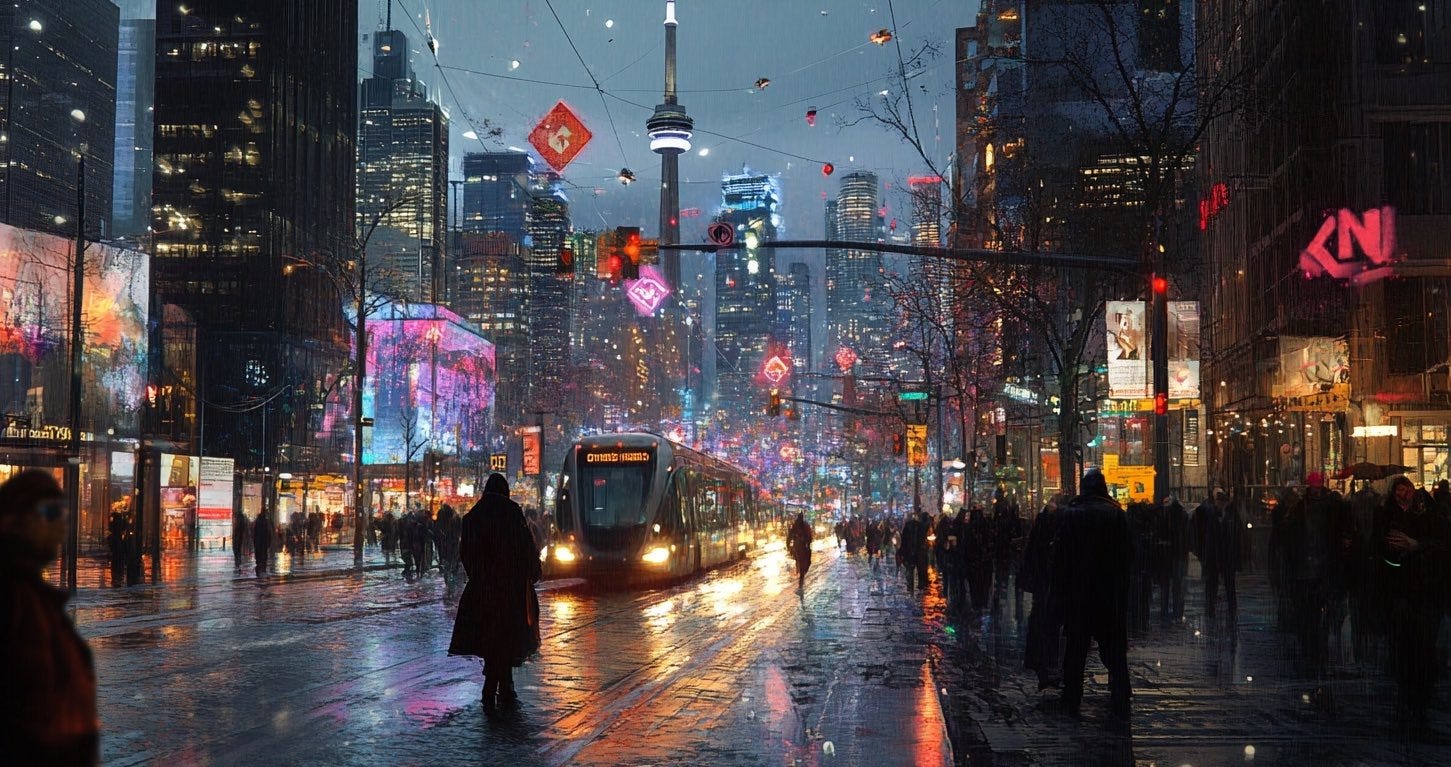When the concept of the 15-minute city first hit the mainstream, it was packaged as a utopian vision for urban life—where everything you need, from work to groceries, is just a short walk or bike ride away. Sounds convenient, right? Well, not so fast. Beneath the glossy exterior of walkability and sustainability, the 15-minute city became a lightning rod for criticism, particularly around concerns of government overreach, surveillance, and a disturbing alignment with the broader Agenda 2030. Now, as these urban planning ideals continue to roll out across major Canadian cities, they’re being rebranded and reintroduced under new names to sidestep the growing backlash. But make no mistake—this is still the same old story of control dressed up in more palatable packaging.
Why Is This Popping Up Now? The Winnipeg Pushback
This rebranding effort isn’t happening in a vacuum. It’s popping up now because municipalities in Winnipeg have started to push back against the Plan 20-50 initiative. Plan 20-50, a long-term regional development strategy, has raised eyebrows for its striking similarities to the 15-minute city concept. The plan, which aims to create more resilient, sustainable communities in Winnipeg, is being met with resistance from local governments who see it as a thinly veiled attempt to impose top-down control over urban planning and daily life.
Several municipalities within the Winnipeg Metropolitan Region have expressed concern that Plan 20-50 could strip them of local autonomy and force them into a one-size-fits-all model of urban development. These municipalities argue that such a plan would centralize decision-making power, taking it out of the hands of local communities and placing it squarely in the lap of a distant bureaucratic machine. The fear is that Plan 20-50 is less about genuinely sustainable development and more about enforcing compliance with a broader, more controlling agenda.
The resistance from Winnipeg's municipalities is significant because it highlights the growing unease with these kinds of urban planning initiatives. If Plan 20-50 can be stopped or modified in Winnipeg, it could set a precedent for other cities across Canada that are facing similar top-down planning efforts. This pushback shows that not everyone is on board with the 15-minute city concept, even when it’s wrapped in the language of sustainability and resilience.
As Winnipeg’s municipalities push back against Plan 20-50, it's clear that this isn't an isolated battle; cities across Canada, from Toronto to Vancouver, are seeing similar agendas quietly slip under the radar, each rebranded to quell growing concerns while pushing forward the same underlying vision of controlled urban living.
Toronto: TransformTO - Same Plan, Different Name
Toronto is at the forefront of this rebranding effort with its “TransformTO” initiative. The city’s goals align closely with the 15-minute city concept, emphasizing reduced car dependency, increased public transit, and sustainable urban growth. But don’t be fooled by the name change—this is still about restricting your freedom of movement under the guise of climate action. Critics argue that by concentrating everything within a small radius, the government gains greater control over where you can go and what you can do, all while keeping a closer eye on your every move. Toronto’s pushback has been minimal, with most of the city’s leadership fully embracing this “green” agenda, leaving concerned citizens with little recourse.
Vancouver: The Vancouver Plan - Control Wrapped in Sustainability
Vancouver’s version of the 15-minute city comes under the banner of “The Vancouver Plan.” Here, the city aims to create walkable neighbourhoods, reduce car use, and become a zero-emissions city by 2050. The plan is being sold as a pathway to a healthier, more sustainable urban environment. But scratch the surface, and you’ll find the same issues—enhanced government surveillance, restrictions on personal freedom, and a creeping sense of being boxed in. While there’s some resistance among the public, Vancouver’s government is charging ahead, largely dismissing critics as climate change deniers or conspiracy theorists.
Montreal: Montreal 2030 - A Vision of “Vibrant” Local Control
Montreal’s urban planning strategy, dubbed “Montreal 2030,” is another example of this rebranding. The plan focuses on improving public transportation, promoting active transportation like walking and cycling, and developing mixed-use neighbourhoods. Sounds harmless, until you consider the implications of having your every movement within these zones tracked and analyzed. Montreal’s government has faced some pushback, particularly from groups concerned about privacy and personal freedom, but so far, the city remains committed to its course, with few signs of slowing down.
Calgary: Municipal Development Plan - Corralling Citizens into Control Zones
Calgary’s Municipal Development Plan also aligns with the 15-minute city ideals, aiming to develop “complete communities” where residents have access to services and jobs within their local area. Critics argue that this approach restricts freedom of movement and increases government control over daily life. While Calgary has seen some public opposition, particularly from those concerned about the loss of individual autonomy, the city’s leadership is pressing forward, arguing that the benefits of sustainability outweigh the costs to personal freedom.
Ottawa: The Ottawa Official Plan - Your World, Condensed and Controlled
In Ottawa, the new Official Plan promotes the development of “15-minute neighbourhoods,” where everything you need is just a short walk or bike ride away. While this might sound convenient, it also raises concerns about government overreach—especially in the epicentre of Canadian politics. By controlling how and where people can move, the government gains unprecedented power over daily life. Ottawa’s resistance has been tepid, with most opposition coming from fringe groups who are easily dismissed by the mainstream media. Meanwhile, the city continues to push its agenda with little regard for the growing unease among its citizens.
Why 15-Minute Cities Are Bad for Canada
Why are 15-minute cities bad for Canada? On the surface, they seem like a utopian vision of urban living, where everything you need is just a short walk or bike ride away. But in reality, these cities are a gateway to a more sinister form of government control and surveillance. The idea of limiting your movement to a small radius is not just about convenience—it’s about control. Imagine being taxed or fined for leaving your designated "zone." For anyone who thinks this idea is too out there: Ennis, a town in County Clare, Ireland, has already tested this 15-minute city concept by charging residents who leave their designated zones past their allowed quota. In fact, it's important to note that these 15-minute cities aren't just a Canadian phenomenon—they're popping up all over the Western world.
So, why are these popping up all over the world? 15-minute cities are being rolled out as part of the globalist agenda outlined in the UN’s Agenda 2030. While it’s dressed up in the language of sustainability, Agenda 2030 comes with some serious restrictions: limits on air travel, a push towards a plant-based diet with little to no meat, reduced clothing production, and overall limitations on personal freedoms. By confining you to a small area and monitoring your every move, the government can easily enforce these draconian measures.
In a 15-minute city, your grocery store might stop carrying meat altogether as part of a "sustainable" initiative, or you could find yourself unable to book a flight because you’ve exceeded your "carbon quota." What starts as a push for greener living can quickly spiral into a dystopian reality of constant surveillance, control, and restricted freedoms. In essence, 15-minute cities are the ideal tool for ushering in the most restrictive elements of Agenda 2030—and it's happening right here in Canada.
Are We Doomed or Can We Fight Back?
The question remains: Are we doomed to live under these increasingly controlled urban environments, or is there a way to push back? The answer isn’t simple. On the one hand, these plans are being rolled out with little regard for public opposition, suggesting that the powers that be are committed to their vision of the future, regardless of what the public wants.
However, there’s still hope. Public awareness is growing, and more people are beginning to see through the glossy veneer of sustainability to the control lurking beneath. By continuing to raise awareness, organize, and push back against these plans, there’s a chance to slow down or even stop their implementation. It won’t be easy, and it won’t happen overnight, but with enough effort, it’s possible to reclaim our cities and our freedom.
So, while the future might look bleak, it’s not set in stone. The fight isn’t over yet, and with enough resistance, we might just be able to prevent the Orwellian 15-minute city from becoming our new reality.











New rules in Canada…fire EVERY civil servant who ever utter the words ‘resilient & sustainable’
Seriously FK these UN ass kissing freaks in municipal gvnmt. Canadians have resiliently sustained living through 200 years of frozen winters and we do NOT need the God be Damned UN (this is a prayer not a curse) thinking we need their advice about how to live. #defundtheUN #defundtheWHO #defundtheWEF #defundtheCBC. THE WHOLE LOT OF THEM ARE TERRORISTS attempting to destroy our way of life.